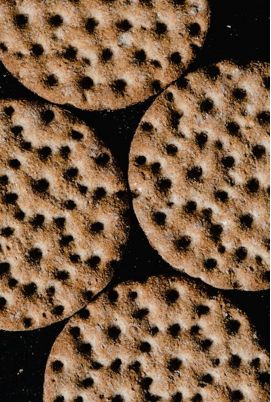- in Africa
- in Africa
- in Africa
- within International Law, Law Department Performance and Consumer Protection topic(s)
In this article, we discuss a significant trade mark judgment of the South African Supreme Court of Appeal ("SCA"), National Brands Limited v Cape Cookies CC and Another.
There's much trade mark law in this judgment and we highly recommend reading it.
THE PARTIES
A smallish business, Cape Cookies CC, applied to register the trade mark SNACKCRAX in class 30 for bread, pastry and confectionery. A large business, National Brands Ltd, opposed the registration of the trade mark. The opposition was based on, inter alia, section 10(17) of the South African Trade Marks Act, 1993.

TRADE MARK DILUTION
Section 10(17) deals with trade mark oppositions that are based on dilution, rather than the more common ground of likelihood of confusion. The section says that registration will be refused to:
"a mark which is identical or similar to a trade mark which is already registered and which is well-known in the Republic, if the use of the mark sought to be registered would be likely to take unfair advantage of, or be detrimental to, the distinctive character or the repute of the registered trade mark, notwithstanding the absence of deception or confusion."
National Brands has a registered trade mark that is well-known in South Africa, the biscuit trade mark SALTICRAX.
THE HIGH COURT
The High Court dismissed the opposition, ruling that the application to register the trade mark SNACKCRAX could go through to registration, despite the registration for SALTICRAX. National Brands filed an appeal.
THE SCA
The SCA overturned the High Court's judgment, holding that the registration of SNACKCRAX was blocked by the registration for SALTICRAX. Judge Gorven's judgment covers a range of issues:
Unfair advantage
The judge said that if the application to register SNACKCRAX was allowed to go through, the use of the trade mark would be likely to take unfair advantage of the distinctive character of the SALTICRAX trade mark and the High Court should have dismissed the opposition on this ground.
No direct authority
There is, said the judge, no South African judicial authority on the issue of a trade mark opposition under section 10(17), in other words, a "dilution opposition". There is, however, the authority on trade mark infringement claims that are based on dilution under section 34(1)(c). An example is the Laugh-it-Off case.
Significant trade mark usage
National Brands was able to establish considerable usage of, and market share for, the trade mark SALTICRAX in South Africa. It said that for 58 years it had been the only proprietor of a 'CRAX mark' in class 30.
The anti-dilution provisions
Judge Gorven discussed these is some detail, saying that they recognise that "protection should be extended beyond merely 'protecting the mark as a badge of origin'''.
The judge referred to the UK case of Premier Brands, where the court said that "the owner of a distinctive mark has a legitimate interest in continuing to maintain the position of exclusivity he acquired through large expenditures."
The judge also referred to the South African case of Laugh-if Off, where Judge Moseneke said the anti-dilution provisions serve a "vital purpose in preserving trade and commercial interests of owners of trade marks which have a reputation."
Not limited to dissimilar goods
The judge said that in South Africa, unlike the UK, dilution protection is not limited to dissimilar goods: "Similar goods and services fall squarely within its ambit."
The established tests
In comparing the respective trade marks the judge used established tests, applying concepts such as global appreciation and dominant feature: "Clearly the dominant feature in the present matter is the use by both of the suffix CRAX".
CRAX is distinctive
The judge said that in the case of both SNACKCRAX and SALTICRAX, the first part is descriptive: "CRAX as the dominant feature of the two words is a coined word... it is therefore capable of distinguishing."
He went on to say that 'the test of an easily recognisable similarity between the two marks is met. The mark SNACKCRAX must therefore be held to be similar to SALTICRAX for the purposes of section 10(1).
Unfair advantage
National Brands argued that Cape Cookies would be likely to take unfair advantage of "the power of attraction, the prestige and repute' of the SALTICRAX mark. The judge agreed, pointing out that SALTICRAX had been registered way back in 1951, and there had been huge advertising spend. SALTICRAX was the only CRAX trade mark in South Africa until 2009 when Cape Cookies registered VITACRAX. The judge said this:
"Cape Cookies does not have to embark upon any marketing campaign of its own (and there is no evidence that it has thus far done so) to achieve market penetration."
Conclusion
The judge ended by saying that "if registration was to be allowed, use of SNACKCRAX would reasonably probably, or be likely to, take unfair advantage of the distinctive character or repute of SALTICRAX".
IN SHORT
The opposition succeeded and the application to register SNACKCRAX was refused. A cracker of a case!
The content of this article is intended to provide a general guide to the subject matter. Specialist advice should be sought about your specific circumstances.


